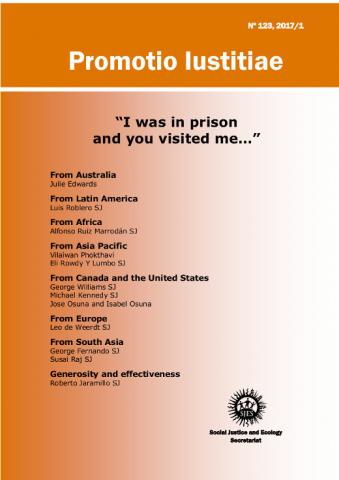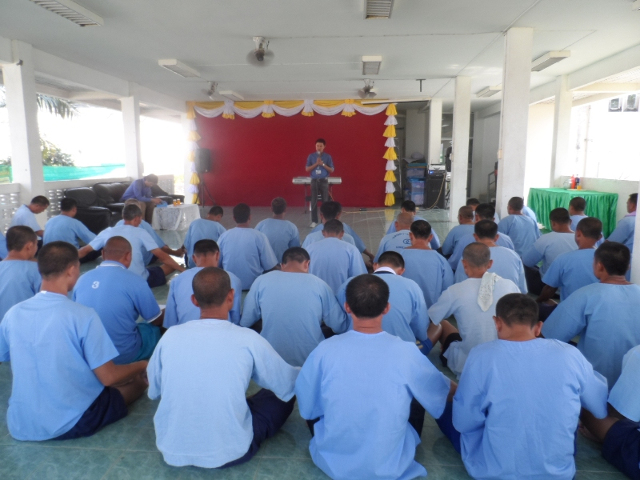
“The Jesuits, and the laypeople that they collaborate with, have a longstanding tradition of serving people in prison, dating back to the first companions of Jesus,” said Fr Álvarez.

The first article is by Julie Edwards, Director of Jesuit Social Services in Australia. She reminds us “St Ignatius himself was imprisoned several times during the Spanish Inquisition for speaking on theological matters without a degree, and prioritised prison ministry during his life”.
In more recent Jesuit history, she says, Jesuits and their colleagues in the prison ministry have found that it embodies the option for the poor that the Society has made. “Not only are prisoners at the bottom of the social ladder, their plight rarely attracts sympathy from the general public,” she says.
Jesuit Social Services (JSS) advocates for a smarter justice system and a safer community. It believes that prison should be used as a last resort and that prisons should focus on rehabilitation and preparing people for their return to the community. It is active at a number of stages in the support cycle – diverting people from prison, helping get them back on track once they have committed an offence, staying connected with them while they are in prison, and supporting them when they transition back to the community. It also runs programmes to help people address the reasons behind their offending such as substance abuse, mental illness, or poor literacy and numeracy.
She also presents the International Jesuit Prison Network established in 2013 to facilitate collaboration among those working in the prison ministry, forging links between people who often work in isolation and allowing for mutual support and learning throughout the network.
Vilaiwan “Kep” Phokthavi, Director of the Jesuit Prison Ministry in Thailand, talks about two programmes: Prison Services for sentenced prisoners and the Immigration Detention Centre for migrant workers without permits, stateless people, asylum seekers, refugees and foreign prisoners being prepared for deportation. In both programmes, accompaniment is the most important element. “When we really know the persons then we know their needs, and our services will follow these needs,” she says.
Finally, Fr Eli Rowdy Lumbo SJ shares his personal testimony as Executive Director of the Philippine Jesuit Prison Service Foundation Inc. Fr Lumbo ministers to more than 20,000 inmates in the National Penitentiary, many of who come from poor families and do not have much education. He shares anecdotes of his personal encounters with them. One such story is of a man who was given a choice: either to admit to a crime he was innocent of in exchange for a good life for his family or deny his participation in the crime and get killed. He chose the former and is now in the maximum camp serving a sentence of more than 20 years. Fr Lumbo asks, “If we were in his shoes, what will be our choice?”
Fr Álvarez says that these stories and the others in the collection also offer a contemplative perspective.
“In their texts, the authors offer a glimpse into the spirituality present in, and necessary for this ministry. They see beyond appearances. They transcend reality and discover in it a mystery of higher love which lives in the darkest and most hidden corners,” he said.
Read the latest issue of Promotio Iustitiae here.







